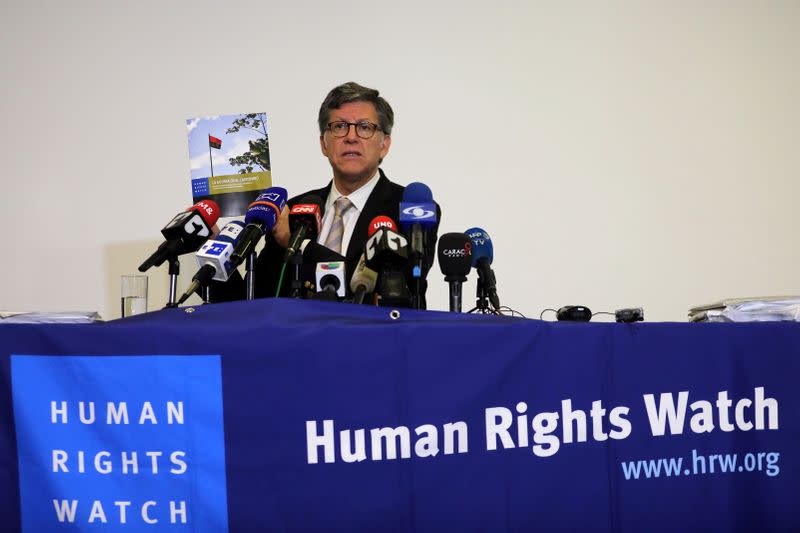Colombia must take steps to stop activist killings, says rights group

By Luis Jaime Acosta
BOGOTA (Reuters) - Colombia must do more to stop the killing of rights activists by stamping out armed groups, guaranteeing criminals face justice, and implementing social programs, advocacy group Human Rights Watch (HRW) said on Wednesday.
More than 400 activists and community leaders have been murdered in Colombia since 2016, according to United Nations data, making the country one of the most dangerous in the world for rights defenders.
The killings are a major challenge for the government of President Ivan Duque, which has faced international and domestic criticism for not doing more to stop the bloodshed.
Murders of activists increased after the Revolutionary Armed Forces of Colombia (FARC) rebels demobilized under a 2016 peace deal, as remaining guerrillas and crime gangs fought for drug trafficking and illegal mining territory.
Individual security provisions offered to some activists by the government are not sufficient, HRW Americas director Jose Miguel Vivanco told Reuters.
"The murders of defenders aren't going to be solved just with bodyguards and cars," he said.
"We're lacking a comprehensive response from the state to protect the population, dismantle armed groups, guarantee justice and encourage local development," Vivanco said, ahead of a new report by the group on the issue.
Colombia has in place a variety of policies and laws meant to prevent attacks, but the government has not implemented them and has reacted to killings slowly, Vivanco said.
An increased military presence has not allowed authorities to exercise control or establish civil structures in areas previously controlled by the FARC, the report said.
"The government has deployed soldiers... but hasn't managed to strengthen the judicial system, improve population protection or ensure adequate access to economic and educational opportunities and public services," Vivanco said.
Limited numbers of judicial staff are a key obstacle, Vivanco added.
The Duque administration last week promised to curb activist murders by boosting military operations and sending more judges to remote areas, but did not offer a timeline or other details.
(Reporting by Luis Jaime Acosta; Writing by Julia Symmes Cobb; Editing by Rosalba O'Brien)


